Event
ARC @ RightsCon 2023
Costa Rica
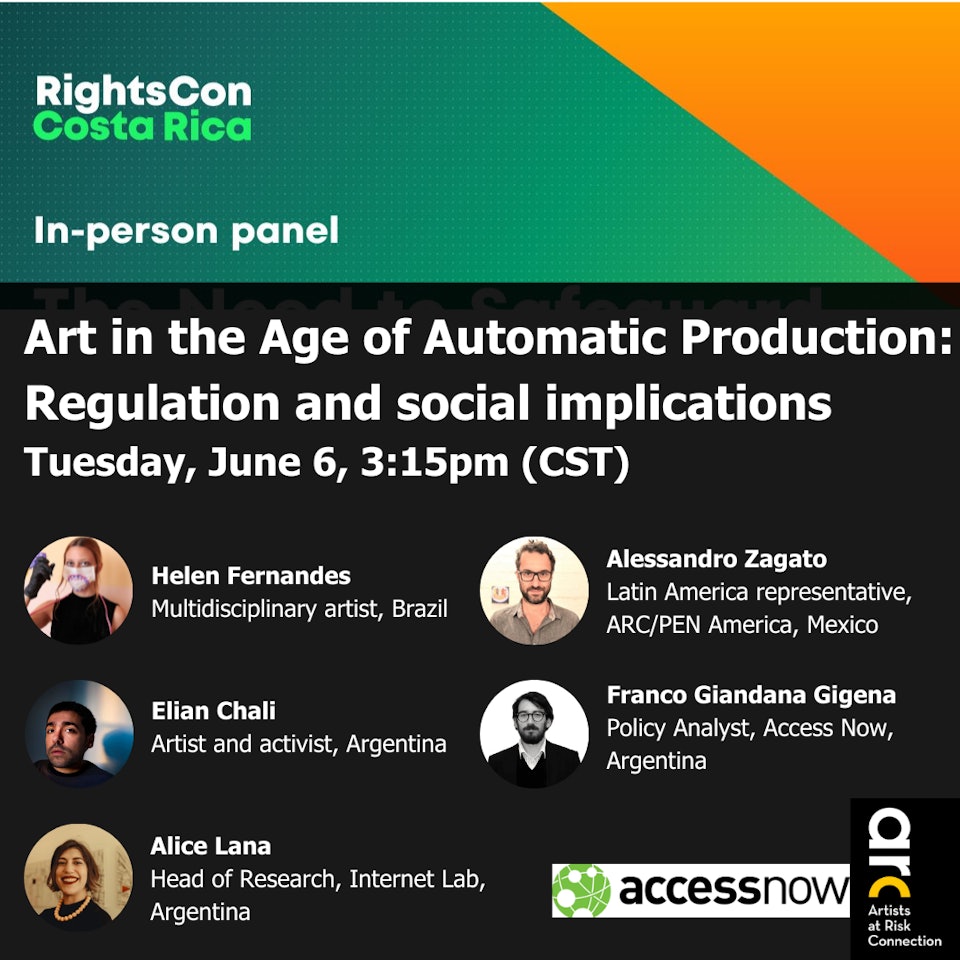
In-person
Tuesday, June 6
3:15pm to 4:15pm (CST)
Over the last few years, artificial intelligence and machine learning have developed the unprecedented capability to automatically produce artworks and cultural objects. This trend has become extremely popular – and highly controversial – within and outside the art world, presenting challenges that directly address the ideas of authorship and art production.
Machine learning algorithms learn from available data and basic indications, and make independent decisions throughout the process of generating new sets of images and determining various outcomes. A critical feature of artificial intelligence is that although the users can define some parameters, the final result is generated by the machine itself through a process similar to that of human thought.
The creation of artistic works through artificial intelligence has wide-ranging copyright implications for existing regulatory frameworks. Artistic works enjoy copyright protection if they are “original,” referring to the work of a human creator. However, artificial intelligence autonomously decides on many aspects associated with the creative process by tracing and imitating other people’s works and styles, and reproducing them digitally without a license.
While copyright offices around the world have varied – and sometimes antithetical – perceptions on this issue, many artists and critics are asking themselves more profound questions related to the status of creative expression and its possible replacement by automated production. Is this plagiarism? Where is the data to train the system taken from? What are the possible biases in autonomous art creation? How does fostering autonomous creation benefit society? Who owns these systems?
This session aims to discuss the impact of artificial intelligence and machine learning on artistic and cultural production. Featuring four distinguished speakers, including artists and copyright professionals, will bring different perspectives on this highly timely and controversial issue. The session will highlight the relationship between AI generated cultural objects, forms of digital censorship, and regulations on the internet and social media platforms.
Speakers
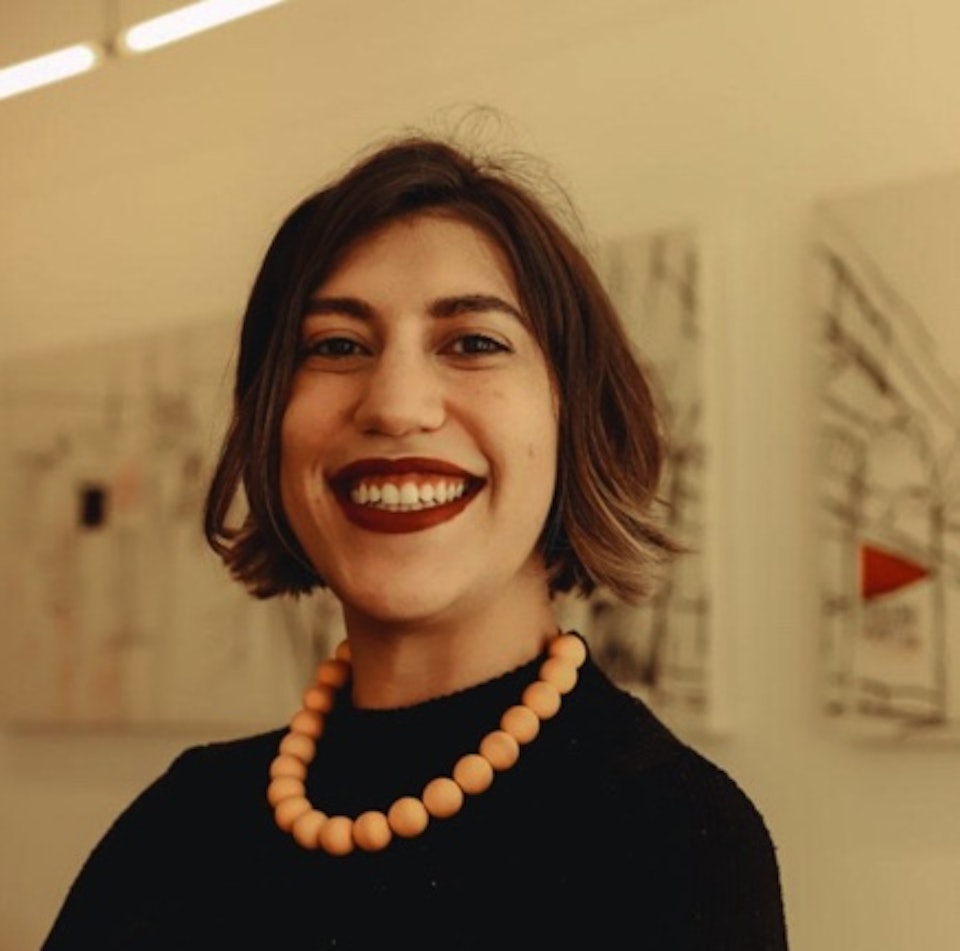
Alice Lana is the Head of Research, Culture and Knowledge & Data Protection Officer at Internet Lab. She holds a master’s degree from the Federal University of Paraná School of Law (PPGD/UFPR), where she also earned her Bachelor of Laws degree. Creative Commons Brazil coordinator on the Open Science and Open Educational Resources (OER) fronts. Author of the book “Women Exposed: revenge porn, Gender, and the Marco Civil da Internet”. Researcher at GEDAI/UFPR – Study Group on Copyright and Industrial Rights. Develops research in the fields of law and technology, gender, body, copyright, universalization of knowledge, privacy and internet governance. Previously, she was a lawyer in the privacy and data protection area at Fiep System. She was a researcher at PET/UFPR, at ITS-Rio and a CAPES scholar. Currently, she is InternetLab’s Head of Research, Culture and Knowledge and Data Protection Officer.
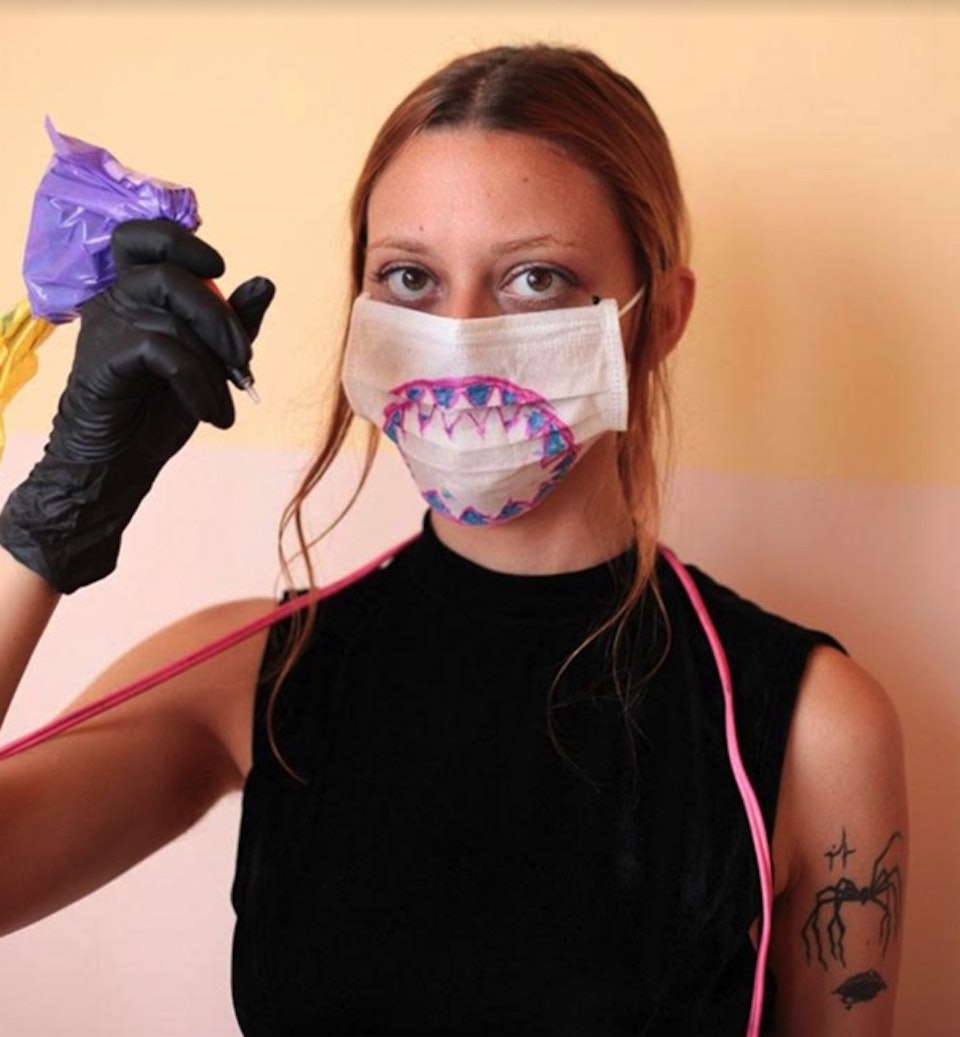
Helen Fernandes (Malfeitona) is a Brazilian multidisciplinary artist from Bahia. She is a mechanical engineer but she loved to draw, and she went from doing it casually on flyers, t-shirts and tote bags, to translating it into tattoos among her friends, encouraged by one of them. The peculiar style of her drawing made her viral.
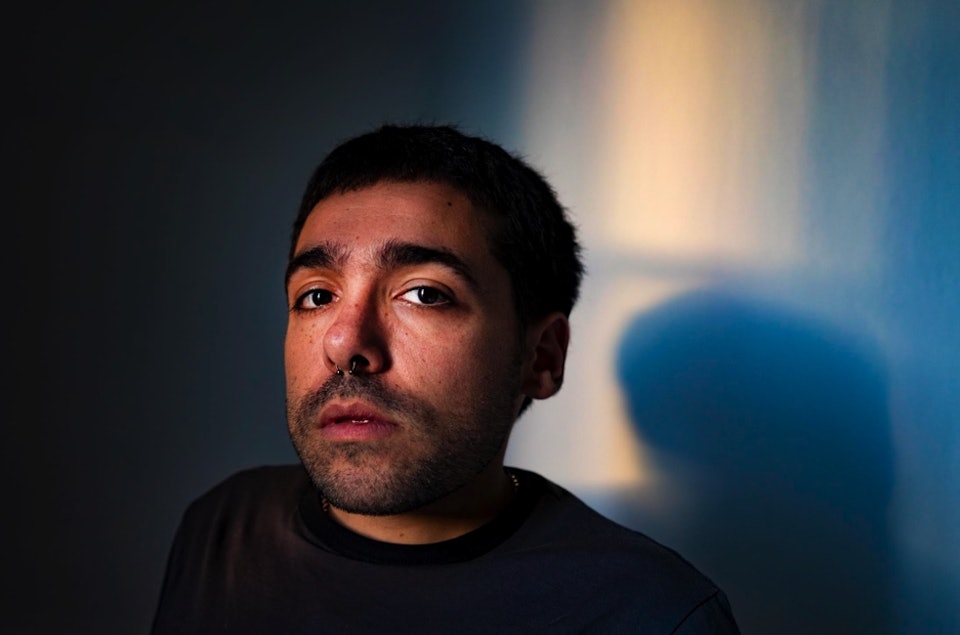
Elian Chali is an Argentinian visual artist and activist.His body of work develops mainly in the public space. The city is the conceptual axis of his work, as support, study space and platform for political problematization. He approaches large-scale painting, writing, and photography as mediums. His work can be found in more than 30 cities in countries such as Argentina, Australia, Belgium, Brazil, Canada, Chile, the United Arab Emirates, Spain, the United States, England, France, Germany, Italy, Mexico, Poland, Portugal, Peru, Paraguay , Dominican Republic, Russia, Uruguay, Ukraine, Taiwan, among others.
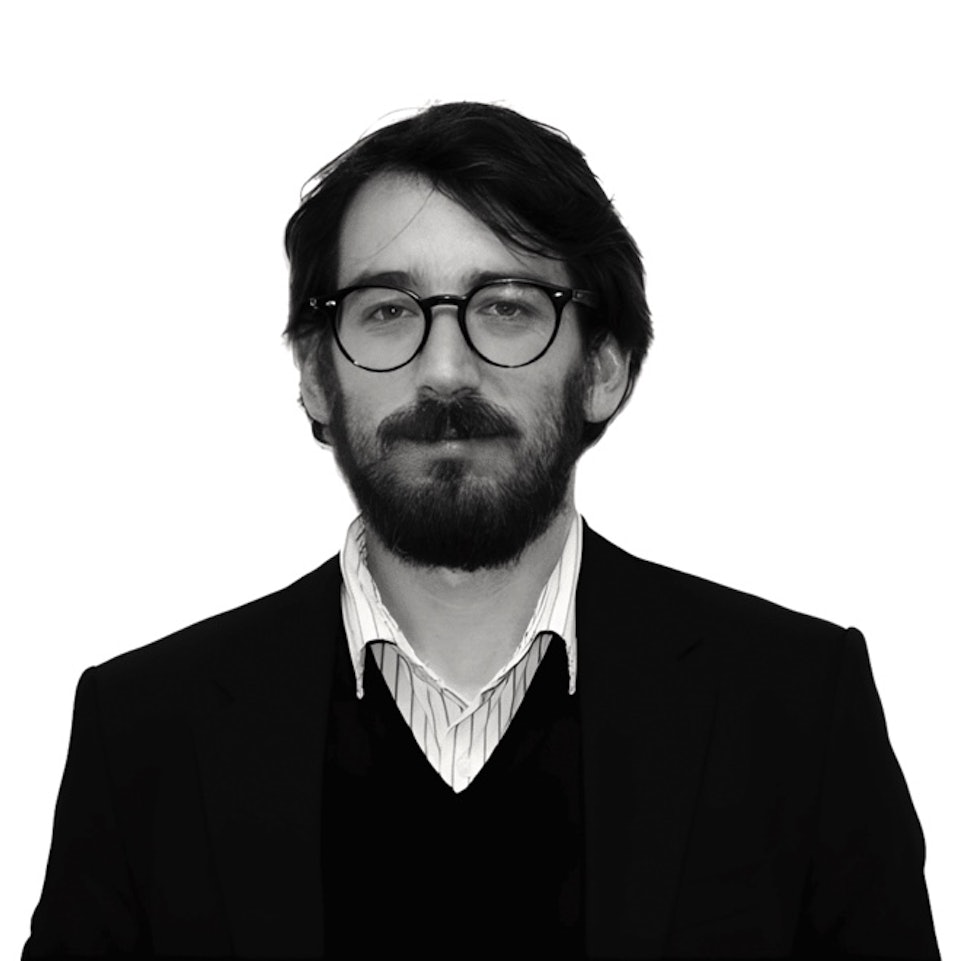
Franco Giandana Gigena is a Public Policy Analyst at Access Now. He is a Lawyer based in Argentina, with international experience in IT and IP Law. He has also been an active member of the Internet Governance Ecosystem for many years and has previously worked at Fundación Vía Libre as a Policy Analyst. He will be focusing on Privacy, surveillance, data protection and related issues. Franco is a philosophy enthusiast and an amateur drummer.

Alessandro Zagato is the Latin America regional representative for the Artists at Risk Connection (ARC)/PEN America. Prior to PEN America, he worked as a researcher for a European Research Council project. He founded the “Research Group in Arts and Politics” (Grupo de Investigación en Arte y Politica - GIAP) and the associated “Casa Giap,” a residency center for international artists and researchers. He holds a PhD in Sociology from Maynooth University, Ireland and is the author of “After the Pink Tide. Corporate State Formation and New Egalitarianisms in Latin America” (Berghahn Books 2020) and “The Event of Charlie Hebdo: Imaginaries of Freedom and Control” (Berghahn Books 2015), among several other publications. He lives in San Cristóbal de Las Casas (Chiapas, Mexico).
Supporter
This event is supported by the Andy Warhol Foundation for the Visual Arts.
